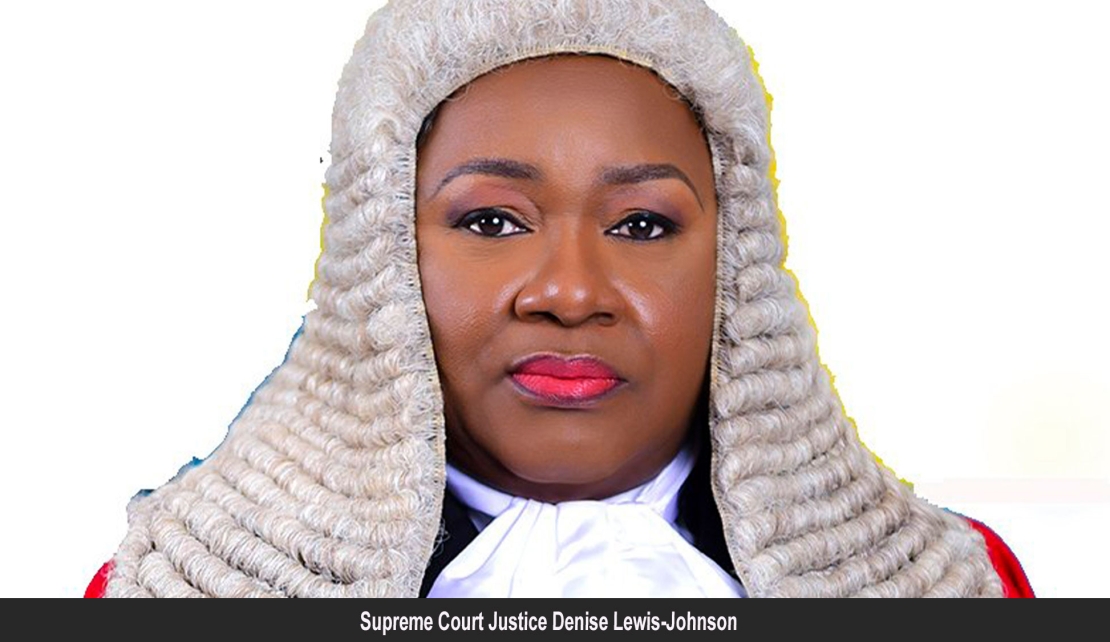BAHAMAS | Judge rules: There is no rape in marriage in the Bahamas

NASSAU, Bahamas, August 31, 2022 - Supreme Court judge Justice Denise Lewis-Johnson has ruled that there can be no rape in marriage in The Bahamas.
Justice Denise Lewis-Johnson in a divorce case on Monday, ruled that though a woman who filed for divorce claimed she felt like a rape victim “for an extensive period of time” when her spouse had sex with her, as it stands there can be no rape in marriage in The Bahamas.
Despite this however, Justice Lewis-Johnson found the actions of a husband who repeatedly forced himself on his wife as being “cruel”, and granted the woman the divorce for which she filed in June 202, on the basis of cruelty.
While noting that the courts “cannot and must not succumb to the temptation to reform laws”, Lewis-Johnson said the husband ignoring his wife’s “feeling of not being a willing participant in sexual intercourse” met the grounds for cruelty.
“The petitioner’s evidence was heavily weighed on acts of sexual intercourse between the parties that she described as acts of rape by the respondent,” she wrote.
“I will not recount her evidence save to say that she states that as a result of the respondent’s behavior, she felt like a rape victim. She further alleges that her physical and mental health have been negatively affected.”
Lewis-Johnson said the issue raised by the parties was of non-consensual and forced intercourse.
This – coupled with the use of the word rape – required the court to consider the term in the context of Bahamian matrimonial laws, she said.
“The court accepts that rape is a most heinous act of cruelty and a malicious violation of a person,” Lewis-Johnson said.
“However, on a strict reading of the laws of The Bahamas, there is no rape in marriage. Pursuant to section three of the Sexual Offences Act, the law does not allow for one spouse to rape the other.
“In this place, we interpret existing laws and apply them. We cannot and must not succumb to the temptation to reform laws.”
Lewis-Johnson said the husband is “correct” in noting that Bahamian laws provide for sex in a marriage. There is a right for consummation she said. “I am, however, of the view that it ought not to be taken by force and is painful to one party,” the judge said.
“It was clear from his evidence that he lacked concern and did not appreciate how his actions impacted the petitioner. The courts accepts his evidence of meeting the financial needs of the family, of loyalty, fidelity and commitment.
“However, given the evidence in its totality, I find that the respondent was cruel to the petitioner.”
She added, “Notwithstanding the respondent’s belief that his actions were his right in marriage, I find the manner in which he carried out that right – forcing himself on his wife, his ignoring her feeling of not being a willing participant in intercourse resulting in mental harm to the petitioner and feeling of being violated – meets the standard of cruelty under section 16 (1) of the Matrimonial Causes Act.”
The woman alleged her husband subjected her to emotional and mental abuse throughout the marriage by repeatedly having sex with her against her will and “indicated she was afraid he would one day snap”.
The husband denied the allegation. He said he was not an adulterer, did not drink, smoke or swear. He paid the household bills and nursed his wife back to health after two major surgeries with “patience, love, care and attention”.
However, he claimed to want the marriage dissolved because his wife had treated him with cruelty by not meeting his sexual needs, not attending church regularly and refusing to attend marriage counseling with him.
The husband maintains it was his belief that a “wife’s obligation is to have sex with her husband”.
According to the ruling, “The last time the respondent climbed on top of the petitioner was April 18, 2021, and the following morning, the petitioner suffered a meltdown at work.” “The petitioner stated that the event which transpired on April 18, 2021, felt like an out of body experience.”
“The petitioner alleged that it was standard for the respondent to come home, ask for sex and, if she refused, lubricate, (forcefully penetrate her) have sex with her and when he was satisfied, roll over, watch television, use his computer or go to sleep,” the document stated.
“The petitioner alleged that the respondent did not care if she consented or said no, but would force her and once he climaxed and satisfied himself, he would ‘get off her’.”
It has been five years since the United Nations Special Rapporteur on Violence Against Women Dubravka Šimonović pointed out that The Bahamas has failed to live up to obligations under the UN’s Convention on the Elimination of All Forms of Discrimination Against Women as it has failed to criminalize all forms of marital rape.
